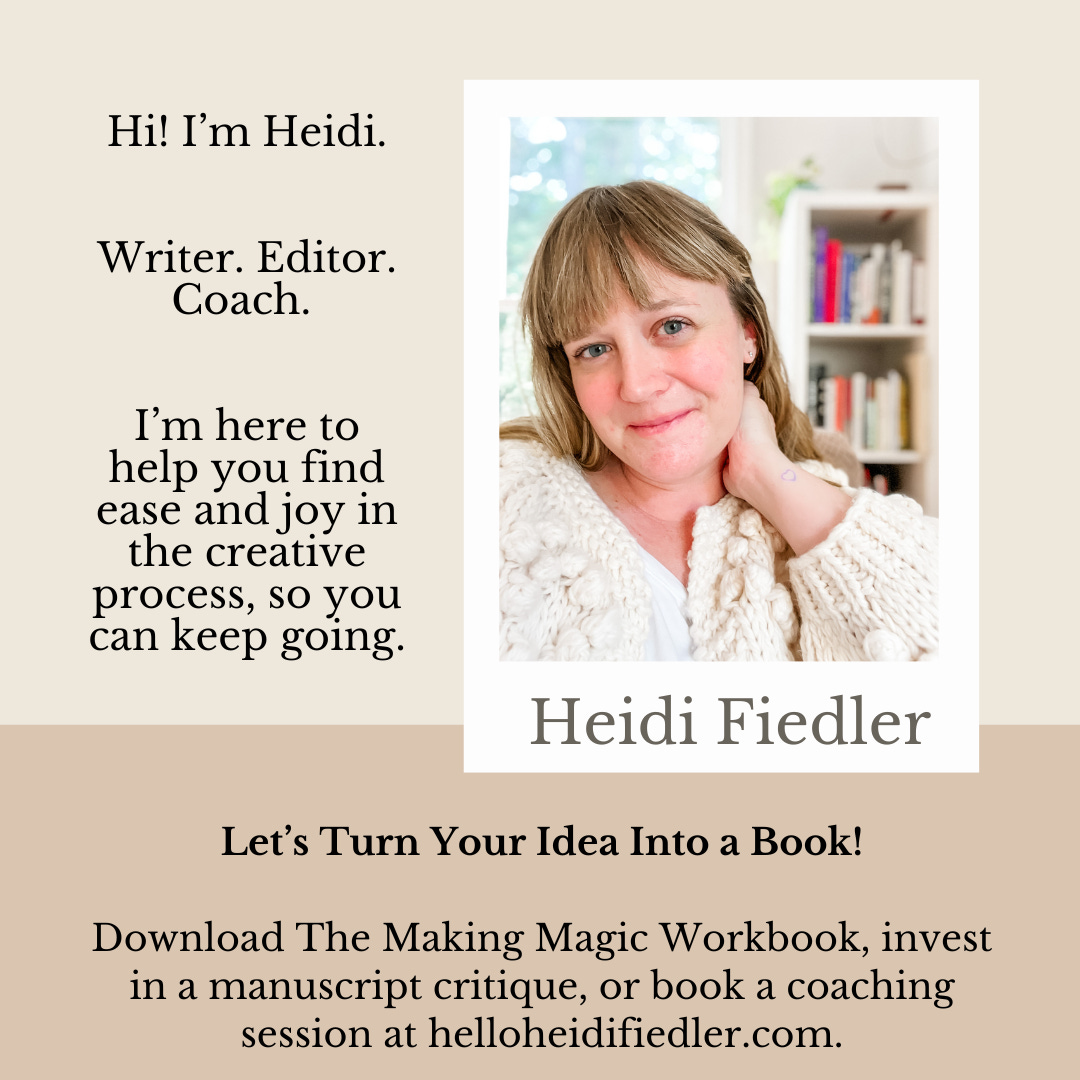This guest post is a little different than my usual format, but I hope you will find it just as helpful! I met Victoria online, and then we realized we live in the same state. We both went to Barnard (many years ago). Like me, she’s been working in children’s books for a long time. Unlike me, she got an MBA in marketing from Columbia University. And she’s on her 28th (!!!) printing for one of her books. If you need help marketing your book, she offers custom packages that can make your life SO much easier. Today she’s sharing five questions you can ask yourself when you’re planning your marketing.
—Heidi
Looking to build your author platform, create your brand, or promote your book? Try asking yourself these 5 questions.
1. Who is your audience?
Obviously, your readers are your ultimate audience. But when you’re writing for kids, you need to think bigger. Who are the “big mouths” who can champion you and your work? Who are the gatekeepers (families, teachers, librarians, booksellers) you want to connect with? Divide your audience into three subsets. Give each one a persona. Describe them in detail.
2. What is your audience looking for when it comes to books and reading?
Think deeply about each persona. What are they into and why? What motivates them? What do they crave? What problems, obstacles, or opportunities do they face with regard to young readers? Make lists.
3. Where do you and your audience intersect?
Consider what each persona cares about and what you have to offer. Which of their needs can you meet? What issues can you (or your work) speak to? How can you help them, solve their problems, provide value? Find three passions that you and they share. Example: graphic novels, epic fantasies, encouraging kids to read whatever they want.
4. How does your audience get their information about books and reading?
What social media platforms does each persona use? Do they read blogs? Do they watch YouTube videos? Do they listen to podcasts? Sign up for newsletters? Attend webinars, conferences, bookstore and library events? Decide where to meet your audience, whether virtually or in person.
5. How can you connect with your audience?
This is the fun part! Come up with three adjectives that describe you and your author brand, then ways you can SHOW (don’t tell) that. Example: if your adjectives are fun, energetic, and accessible, you might show that with vibrantly colored entertaining content, videos of you talking, hosting live chats, or attending events. Or if your three adjectives are mindful, poetic, and nature- loving, you might show that by using pastels or earth tones to create content that’s poignant or thought-provoking, you might share poetry, nature scenes or videos, inspirational ideas, ask questions, give mindfulness tips. Get it?
Now, here’s how to use your answers to make a blueprint.
For each platform that you identified in 4, come up with three buckets of content based on your responses to 3. Brainstorm what the three categories might look and sound like from your answer to 5. The content could be photos and graphics, videos, live or recorded interviews, newsletter stories, links of helpful info, in-person conversations at an event, etc. In your content, be sure to focus on what your audience needs from 2. And always address each piece of content to one or more of the personas in 1, as if they were a real person you know (or want to know). From there, come up with a schedule you can be consistent with (say, 3x a week), and alternate the three buckets.
Thoughts? Questions? Comment below!
Want to work with Victoria?
Victoria J. Coe is the award-winning author of nine books for children, including the popular Fenway and Hattie series, as well as co-author of two “how to write kidlit” books. She has an MBA in Marketing from Columbia University. Visit her online @victoriajcoe or victoriajcoe.com.
Nebula Notebook is a place to meet kindred spirits, get inspired, and learn how to find ease and joy in the creative process—even when life is bananas. 🍌🍌🍌
✏️ PS—The fastest way to grow as a writer is to book a manuscript critique or a creative coaching session with an expert. My clients get agents, sell books, and win awards. They also learn how to enjoy the creative process, so they can keep going when life gets hard. 👏






